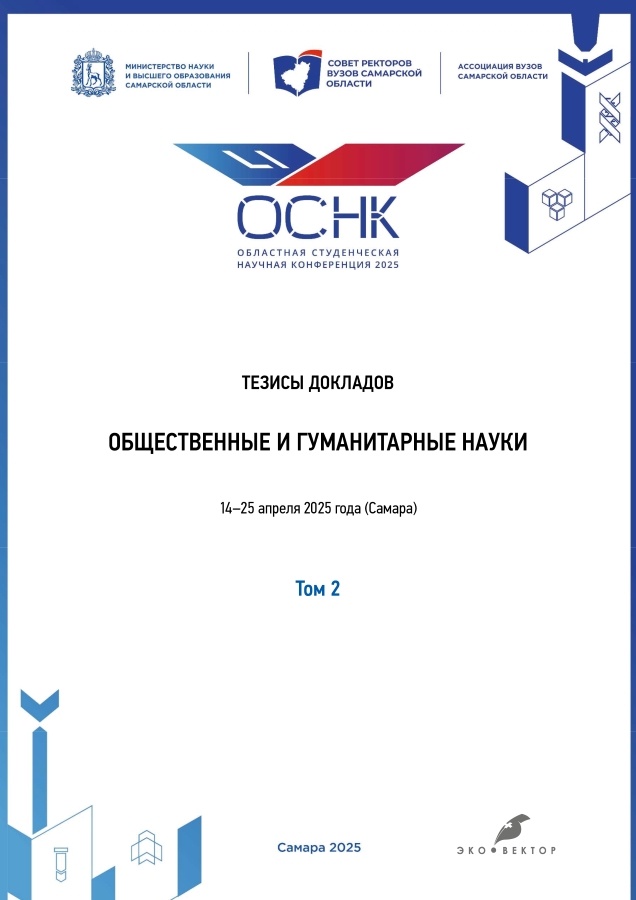Development of soft skills of future architects by means of interactive activities
- 作者: 1
-
隶属关系:
- Samara State Technical University
- 期: 卷 2 (2025)
- 页面: 196-196
- 栏目: ЧАСТЬ II. Иностранный язык в области профессиональной коммуникации
- ##submission.dateSubmitted##: 21.05.2025
- ##submission.dateAccepted##: 05.06.2025
- ##submission.datePublished##: 06.11.2025
- URL: https://consilium.orscience.ru/osnk-sr2025/article/view/680116
- ID: 680116
如何引用文章
全文:
详细
Reasoning. Modern labor market demands for architects that do not only have professional knowledge but also well-developed soft skills [1]. Existing English textbooks for future architects are primarily focused on text-based exercises and vocabulary acquisition, neglecting soft skill development. This study addresses this gap by exploring the potential of interactive exercises in English lessons to foster key soft skills such as communication, creativity, critical thinking, and teamwork.
Aim. Exploring the ways to develop soft skills of future architects by means of interactive speaking exercises in English classes and creating exercises that align with their interests and professional needs.
Methods. The study included several methods combining literature review of contemporary pedagogical studies [2, 3], quantitative analysis of 60 job postings (30 international and 30 Russian), the survey assessing skill priorities and learning preferences of 97 future architects, and the experiment testing our own interactive exercises including the “Architectural Challenge” role-play. It was piloted with 20 students, refined based on feedback, and ultimately implemented with 40 Intermediate-level learners to evaluate effectiveness in soft skill development.
Findings. First, the job market analysis demonstrated that communication skills were universally prioritized (appearing in 16 Russian and 14 international postings). At the same time, there were some differences between British and Russian job requirements for architects — Russian employers emphasized stress resistance (mentioned in 12 postings) whereas foreign vacancies highlighted leadership (18 postings) and client orientation (15 postings). Secondly, the student survey showed strong alignment with market demands, with 68 % of respondents identifying communication as most crucial, followed by creativity (59 %) and teamwork (54 %), while revealing a clear preference for interactive forms of study (54 % favored mini-group work). Besides, our interactive game “Architectural Challenge” shows significant improvement of presentation skills (reported by 85 % of participants), team collaboration dynamics (noted in 78 % of post-exercise evaluations), and a 40 % increase in self-assessed confidence for public speaking scenarios. These results collectively demonstrate both the market relevance of targeted soft skills and the effectiveness of interactive language exercises in addressing these competencies.
Сonclusion. This study confirms that foreign language instruction holds significant potential for developing essential soft skills of future architects, including communication, creativity, critical thinking, adaptability, teamwork, and leadership. The research particularly highlights the effectiveness of interactive teaching methods such as project-based tasks, role-play, the “carousel” technique, group discussions and brainstorming sessions. These approaches not only enhance language proficiency but simultaneously foster professional soft skills crucial for career success.
全文:
Reasoning. Modern labor market demands for architects that do not only have professional knowledge but also well-developed soft skills [1]. Existing English textbooks for future architects are primarily focused on text-based exercises and vocabulary acquisition, neglecting soft skill development. This study addresses this gap by exploring the potential of interactive exercises in English lessons to foster key soft skills such as communication, creativity, critical thinking, and teamwork.
Aim. Exploring the ways to develop soft skills of future architects by means of interactive speaking exercises in English classes and creating exercises that align with their interests and professional needs.
Methods. The study included several methods combining literature review of contemporary pedagogical studies [2, 3], quantitative analysis of 60 job postings (30 international and 30 Russian), the survey assessing skill priorities and learning preferences of 97 future architects, and the experiment testing our own interactive exercises including the “Architectural Challenge” role-play. It was piloted with 20 students, refined based on feedback, and ultimately implemented with 40 Intermediate-level learners to evaluate effectiveness in soft skill development.
Findings. First, the job market analysis demonstrated that communication skills were universally prioritized (appearing in 16 Russian and 14 international postings). At the same time, there were some differences between British and Russian job requirements for architects — Russian employers emphasized stress resistance (mentioned in 12 postings) whereas foreign vacancies highlighted leadership (18 postings) and client orientation (15 postings). Secondly, the student survey showed strong alignment with market demands, with 68 % of respondents identifying communication as most crucial, followed by creativity (59 %) and teamwork (54 %), while revealing a clear preference for interactive forms of study (54 % favored mini-group work). Besides, our interactive game “Architectural Challenge” shows significant improvement of presentation skills (reported by 85 % of participants), team collaboration dynamics (noted in 78 % of post-exercise evaluations), and a 40 % increase in self-assessed confidence for public speaking scenarios. These results collectively demonstrate both the market relevance of targeted soft skills and the effectiveness of interactive language exercises in addressing these competencies.
Сonclusion. This study confirms that foreign language instruction holds significant potential for developing essential soft skills of future architects, including communication, creativity, critical thinking, adaptability, teamwork, and leadership. The research particularly highlights the effectiveness of interactive teaching methods such as project-based tasks, role-play, the “carousel” technique, group discussions and brainstorming sessions. These approaches not only enhance language proficiency but simultaneously foster professional soft skills crucial for career success.
作者简介
Samara State Technical University
编辑信件的主要联系方式.
Email: na9477@yandex.ru
student, Group 110, Institute of Engineering and Economics and Humanitarian Education
俄罗斯联邦, Samara参考
- Rybina O.V. Formation of soft skills competencies as a factor of success in teamwork // Problems of modern pedagogical education. 2023. N 78–4. P. 185–188. EDN: PYRQMZ
- Melnikova O.K., Gataullina V.L., Telitsina E.A. Formation of «soft skills» of students by teaching English // Problems of modern pedagogical education. 2023. № 79–2. P. 266–269.
- Kirichenko A.M. Development of «soft» skills in teaching foreign language communication to bachelors // Kant. 2024. № 1. P. 244–249.
补充文件









